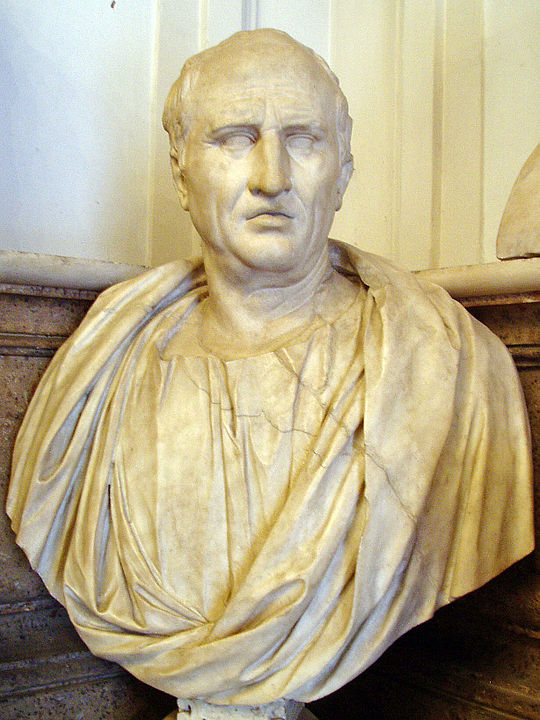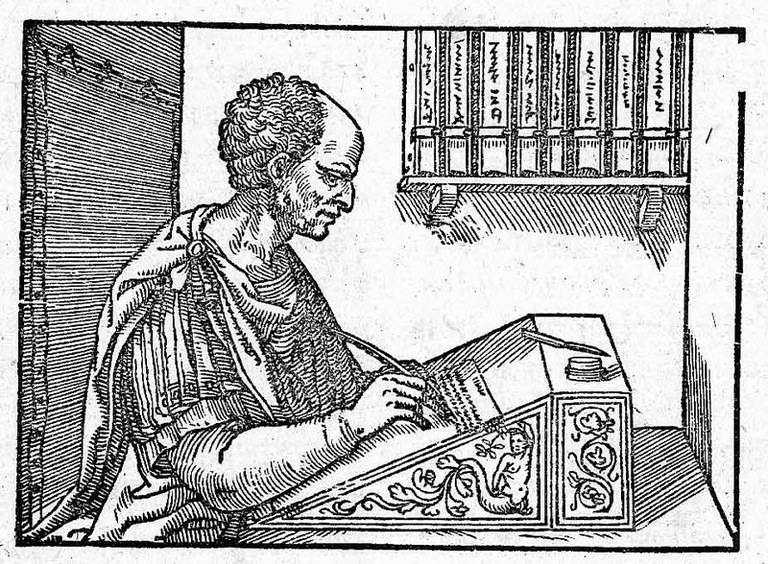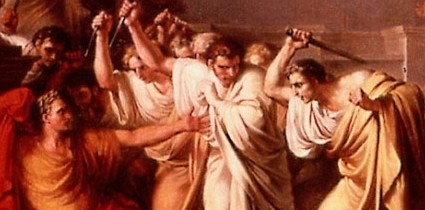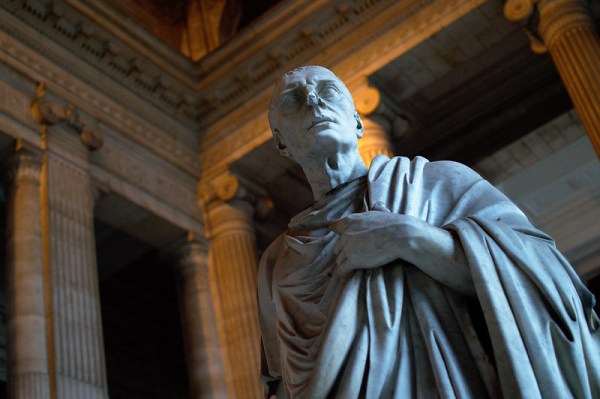Written by Ed Whalen, Contributing Writer, Classical Wisdom
Cicero (106-43 BC) is perhaps one of the most remarkable figures in the history of Rome. He was an important politician and statesman who attempted to defend the Republic.
Cicero was also a great philosopher and writer whose works greatly influenced the development of Roman oratory and literature. His works had a profound impact on the history of Western Civilization.
Early Life and Career

Marcus Tullius Cicero was born into a wealthy equestrian order in the town of Arpinum, which was some 50 miles to the south of Rome. His family, while influential, would not have been regarded as part of the elite. Cicero was sent to Rome along with his younger brother to study philosophy and oratory. He was a brilliant student and after a brief period of military service, he studied law. In 81 BC, Cicero successfully defended a man accused of parricide and this made him famous. During the case, he coined the famous legal term ‘Cui Bono’ which means ‘who benefits.’
Cicero entered politics and soon became Quaestor (75 BC), then Praetor (66 BC). As Praetor, he prosecuted the corrupt governor of Sicily Verres and this increased his popularity and earned him a reputation for honesty. Finally, he was elected to the highest office in Rome: Consul (66 BC).
During his consulship, populist leader Catiline plotted to overthrow the government of Rome and its institutions. Cicero acted decisively to expose and suppress the conspiracy. As Consul, he ordered the execution of Catiline, who escaped and was later killed in battle. Cicero’s execution order was controversial – many members of the poor regarded Catiline as a hero – and was even seen as illegal by high-ranking figures like Julius Caesar. Despite not belonging to the senatorial class, Cicero became a passionate defender of the old regime in Rome.
Alliances, Civil War and Exile

Cicero was invited by Julius Caesar to join the Triumvirate in 60 BC. This was an alliance between Caesar, Pompey and Crassus that came to dominate Rome. In 59 BC, the consul and demagogue Clodius tried to prosecute Cicero for his role in ordering the execution of Catiline.
Clodius’ followers threatened to kill Cicero and he fled into exile. It appears that he was abandoned by most of his allies and friends. Cicero later returned to Rome and praised the First Triumvirate. He was no longer a figure of any political importance.
In 51 BC, Cicero became governor of Cilicia and was active in the operations against the Parthians in the aftermath of the disaster of Carrhae (55 BC). In 49 BC, Cicero joined the Pompeiians in the civil war with Caesar. After the defeat of Pompey at Pharsalus, he refused to take command of the Pompeian forces and was later pardoned by Caesar. He returned to Rome and used his power of oratory to persuade Caesar to respect Republican institutions. Increasingly, Cicero devoted himself to his literary work.
The Death of Caesar
In 44 BC, Caesar was assassinated. It appears that Cicero took no part in the conspiracy. Later he tried to influence Octavian (the future Augustus), but without success. Octavian, Lepidus and Mark Anthony entered into an alliance known as the Second Triumvirate.
To establish their hold on power, they proscribed their enemies. Mark Anthony hated Cicero for denouncing his ambition and character in numerous speeches. Cicero was killed by a centurion. It was later reported that his head was brought to Mark Anthony, whose wife stuck pins in the dead orator’s tongue in revenge for his attacks on her husband.
Cicero’s Literary Genius
Cicero was such an excellent orator his name became a byword for eloquence. His speeches are still regarded as masterpieces of Latin prose. They have inspired orators from ancient times to the 19th century.
Cicero’s ideas on liberty and the nature of political representation have been profoundly influential, particularly during the Enlightenment and the French Revolution. Cicero’s letters to his friend Atticus were widely admired and still read to this day. In these, he discusses politics, personal matters, and his views on life.
Cicero was also interested in philosophy. However, he was not an original thinker and much of his thought was borrowed from Greek philosophy. Nevertheless, his works are a source for many lost writings and he introduced many Greek philosophical ideas into Roman culture. He greatly influenced many early Christian thinkers and leaders who regarded him as a ‘righteous pagan’.
During the Renaissance, his works were rediscovered by humanists such as Petrarch. Cicero’s works helped to popularize the works of the Classical era and this was crucial in the evolution not only of the Renaissance but also the modern Western world.
Conclusion
Cicero was a major political figure during an era that saw Rome transition from a Republic to an empire. However, he was not a capable political operative and was often out-maneuvered by his enemies. At times he tried to defend the traditional liberties but at other times he made accommodations with those who were destroying them, such as Octavian and Caesar.
Even so, he became a symbol for those who believed in freedom and democracy. His literary works were immensely important. Cicero was a master of rhetoric and his speeches are masterpieces of Latin prose. He helped popularize Greek philosophy and his works influenced both early Christians and Renaissance humanists.
References:
Anthony Everitt (2003). Cicero: The Life and Times of Rome’s Greatest Orator. Random House
Cicero, Marcus Tullius, Cicero’s letters to Atticus, Vol, I, II, IV, VI, Cambridge University Press, Great Britain, 1965












No comments yet. You should be kind and add one!
Our apologies, you must be logged in to post a comment.